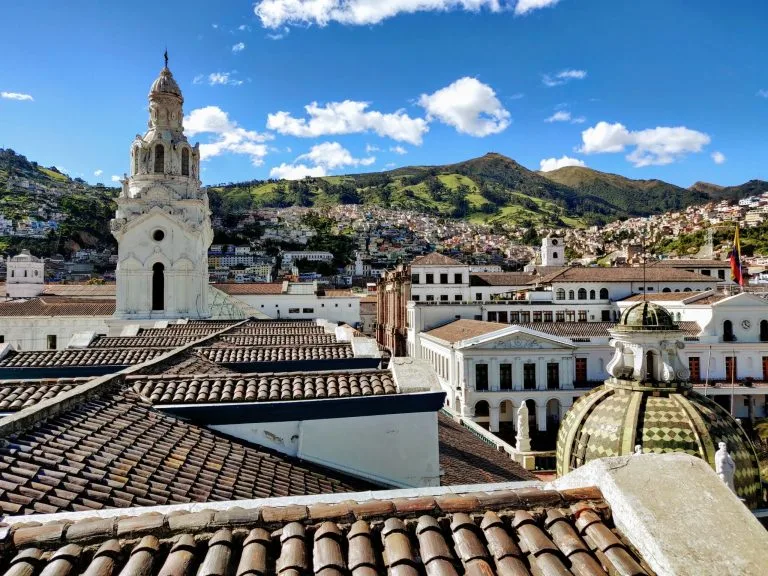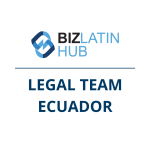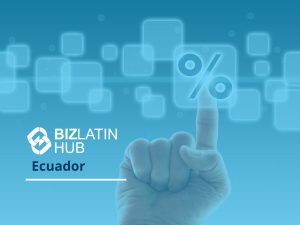If you are considering doing business in Ecuador and will be importing, distributing, or commercializing a product, it is worth understanding the process for product registration in the South American nation. Because by meeting all statutory requirements associated with product registration in Ecuador, your product will get to market soonest, while your business will remain in good standing with local authorities.
Ecuador offers an attractive business environment that guarantees foreign investors the same rights as Ecuadorian citizens. Its location on the northwest coast of South America, bordered by Colombia and Peru, also make it a logistical hub, with the Pacific coastal port of Guayaquil witnessing the the seventh-largest throughput among all ports in Latin America and the Caribbean in 2018.
Ecuador is the largest exporter of cacao in the Americas, while also counting fish, timber, hydro power, textiles, coffee, rice, and potatoes among its major export products. Main destinations for goods include Chile, China, Panama, Peru, and the United States.
On top of its well-developed agriculture sector, Ecuador also has significant hydrocarbon reserves, with oil drilling accounting for 40% of the country’s export income, while the services sector is a key source of employment for the economy. Capital city Quito, meanwhile, has been recognized as a regional software development hub, with a high concentration of skilled human capital available at competitive rates.
In 2019, Ecuador recorded foreign direct investment (FDI) inflows of $937 million (all figures in USD) and registered a gross domestic product adjusted for purchasing power parity (GDP-PPP) of $202 million. That same year, gross national income (GNI) — a statistic that gives a broad indication of prosperity — stood at $11,500 per capita, making Ecuador an ‘upper-middle income’ country according to international standards.
Read on to learn about product registration in Ecuador, or go ahead and contact us now to discuss your business options.
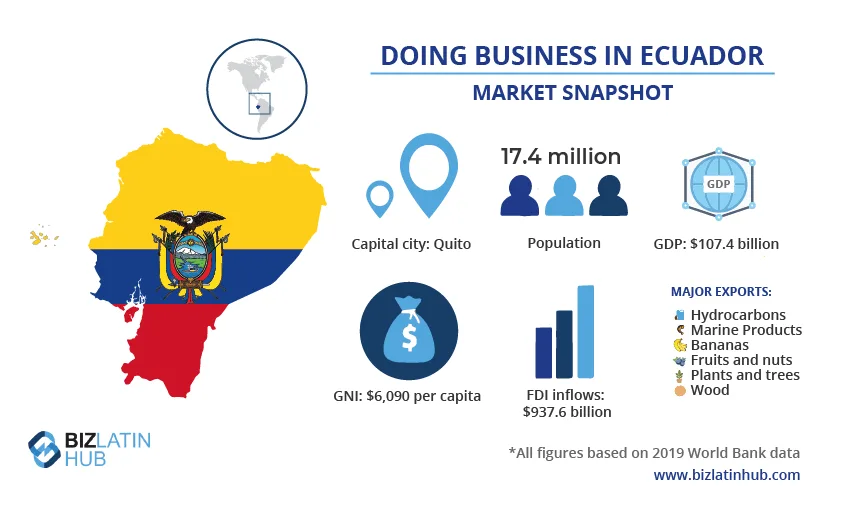
Product registration in Ecuador: 3 key steps
By properly undertaking product registration in Ecuador, you will be able to protect your trademark and your company’s intellectual property, ensuring a safe market entry and maintaining your business competitiveness and profitability. As established by local corporate regulations, the National Secretariat for Intellectual Law (SENADI) is the entity in charge of recognizing intellectual property rights over a product or service offered in Ecuador. The key steps to register a trademark and intellectual property in Ecuador are:
Step 1: Carry out a detailed search
Carry out a detailed search to find out if there is already a product or service similar to yours being offered by a brand operating in Ecuador. Please note that this step can be done virtually on the SENADI website.
Step 2: Pay a registration fee
If no matches are found with other brands already operating in the country, you must pay a registration fee established by SENADI.
Step 3: Present to SENADI the distinctive signs of your brand
To continue with the process of product registration in Ecuador, you must present to SENADI the distinctive signs of your brand, which will differentiate it from other brands already existing in the country. After this, SENADI will grant you a trademark property title that will certify the registration of your brand in Ecuador.
Once this process is completed, you will be the sole owner of your brand, and you will have the right to exploit it or issue a license for a third party to exploit it. However, whenever you issue a license to third parties, it is strongly recommended to engage a local legal service provider that can regulate the use of your brand or product and protect it against possible practices that could affect your reputation and recognition in the market.
Registering a product for human consumption
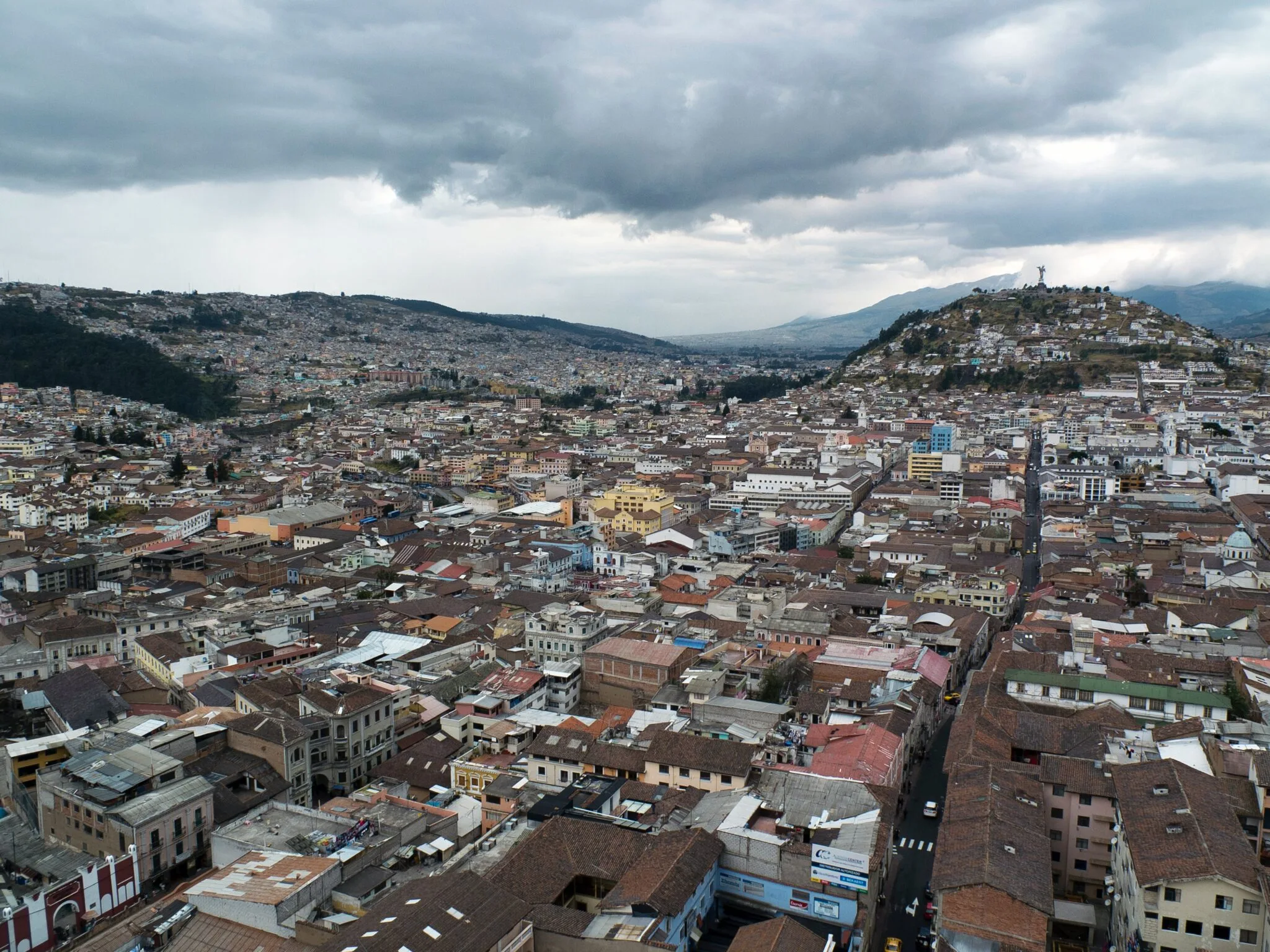
If you seek to sell products for human consumption in Ecuador, you must obtain a ‘sanitary registration’ from the National Agency for Regulation, Control and Sanitary Surveillance (ARCSA). A sanitary registration is a special permit that certifies that a product meets statutory health standards and is appropriate for human consumption.
The ARCSA classifies products for human consumption in the three categories of high risk, medium risk, and low risk, established following an examination by ARCSA, which will issue a categorization report. Once this process is completed, you will receive a health certificate that will authorize you to legally sell the product in the country.
Import requirements in Ecuador
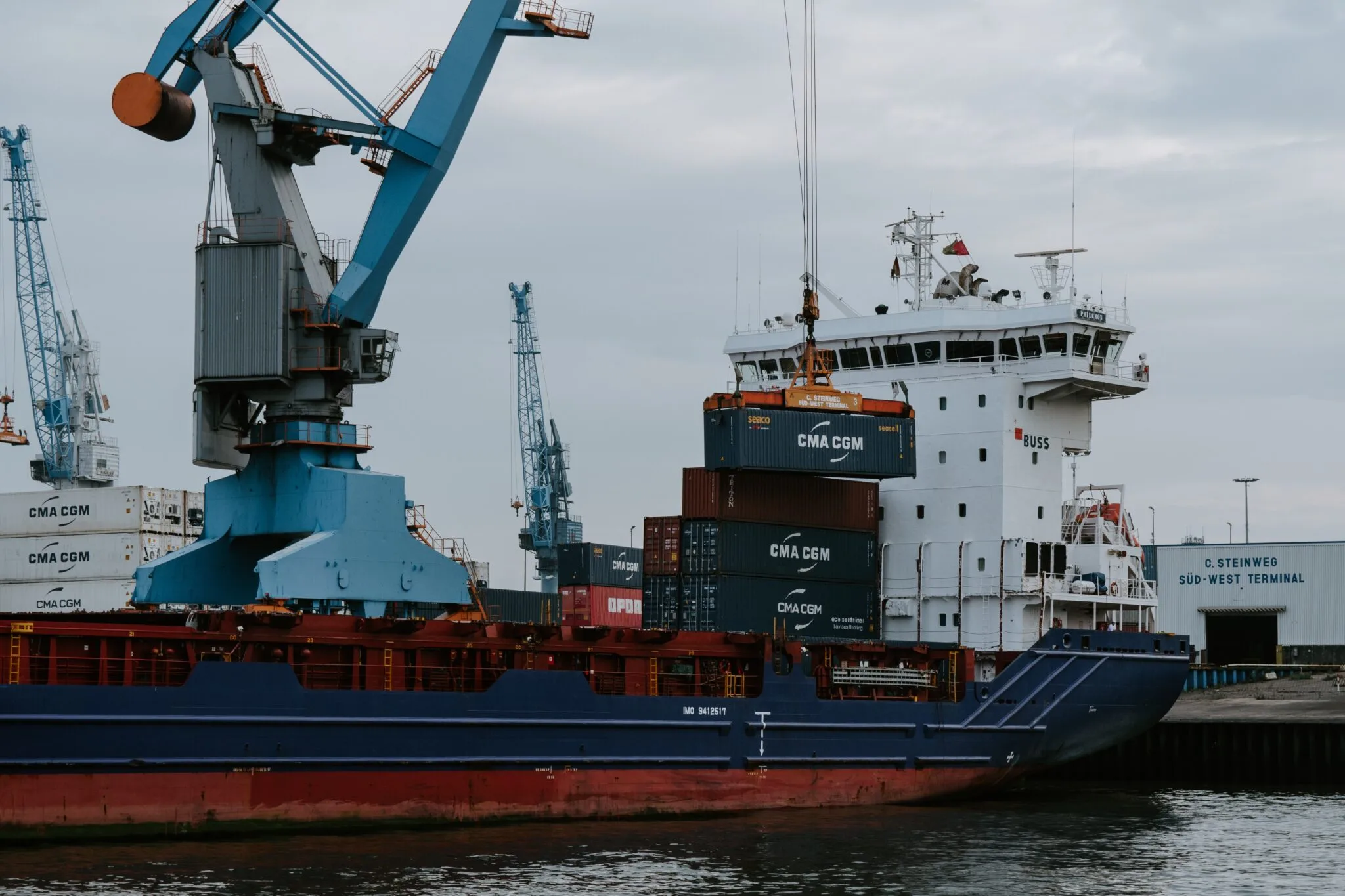
To import products to Ecuador, you must register your brand with the national tax authoritiy (Servicio Nacional de Aduana del Ecuador — SENAE) and obtain a corporation tax number (Registro Único de Contribuyentes — RUC) issued by Ecuador’s Internal Revenue Service (Servicio de Rentas Internas del Ecuador — SRI). The main documents to import products to Ecuador include:
- Commercial invoice
- Original document or copy of the invoice that certifies the transport of the merchandise by air or sea
- RUC
- Certificate of origin to apply for tariff benefits, if applicable
- Import control certificate (INEN-1) duly completed
- Insurance policy certificate
Note that you must also include detailed information on the weight of the product you are going to import, as well as a label that describes the characteristics of the product in Spanish. In addition, once the merchandise arrives in Ecuador, all corresponding fees must be paid through the SENAE website.
Biz Latin Hub can help with product registration in Ecuador
At Biz Latin Hub, our team of multilingual legal specialists can ensure the success of your business expansion and help you manage product registration in Ecuador. We have extensive experience assisting foreign companies with high-quality company formation, tax advisory, and recruitment services. With a full portfolio of market entry and back-office services, we can be your single point of contact to take advantage of business opportunities in Ecuador, or any of our other 16 locations in Latin America and the Caribbean.
Contact us now to start your commercial expansion.
Learn more about our team and expert authors.

